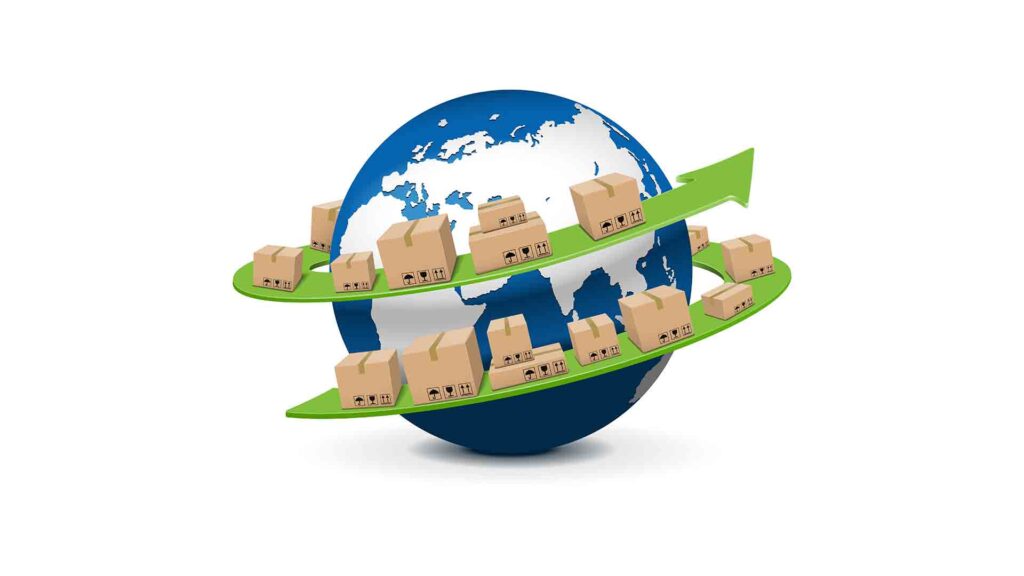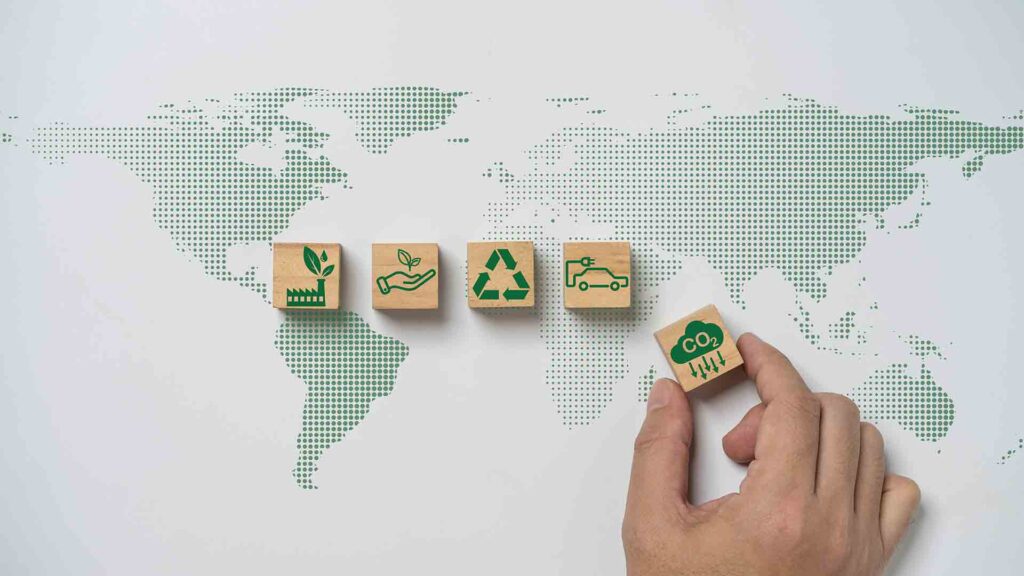In an era where environmental consciousness and social responsibility are at the forefront, the concept of a sustainable supply chain has emerged as a guiding principle for businesses. This blog goes through the intricacies of sustainable supply chains, exploring their significance, challenges, and the transformative impact they can have on both businesses and the planet.
Understanding Sustainable Supply Chain:
What is a Sustainable Supply Chain? A sustainable supply chain is a holistic approach to sourcing, manufacturing, and delivering products that minimizes the environmental impact, promotes ethical practices, and ensures long-term economic viability. It goes beyond mere compliance with regulations, aiming to contribute positively to the environment and society.
Key Components of a Sustainable Supply Chain:

1. Ethical Sourcing:
Fair Trade Practices: Ensuring fair wages and humane working conditions for laborers involved in the supply chain.
Responsible Mining and Harvesting: Avoiding sourcing practices that lead to deforestation, habitat destruction, or exploitation of natural resources.
2. Green Manufacturing:
Energy Efficiency: Incorporating technologies and processes that reduce energy consumption and reliance on non-renewable resources.
Waste Reduction: Minimizing waste generation through recycling, reuse, and responsible disposal practices.
3. Transportation and Logistics:
Carbon-Neutral Shipping: Exploring options for carbon-neutral transportation methods or investing in carbon offset programs.
Optimizing Routes: Utilizing data and technology to optimize transportation routes, reducing fuel consumption and emissions.
4. Packaging Sustainability:
Minimalist Packaging: Embracing minimalist and eco-friendly packaging designs to reduce material use and waste.
Biodegradable Materials: Choosing materials that break down naturally, lessening the environmental impact of packaging.
5. End-of-Life Considerations:
Product Recycling Initiatives: Implementing programs that encourage customers to return products for recycling at the end of their life cycle.
Circular Economy Models: Designing products with the intention of recycling and reusing materials in a closed-loop system.
Challenges in Implementing Sustainable Supply Chains

What Challenges Do Businesses Face in Implementing Sustainable Supply Chains? Implementing sustainable supply chains is a commendable goal, but it doesn’t come without its share of challenges. Let’s delve into some of the key obstacles faced by businesses striving to integrate sustainability into their supply chain practices:
1. Complexity of Global Supply Chains:
Modern supply chains are intricate webs that span the globe. Coordinating sustainability initiatives across diverse geographical locations and suppliers introduces complexities. Implementing centralized control mechanisms, leveraging technology for real-time visibility, and fostering transparent communication with all stakeholders can help overcome this challenge.
2. Cost Considerations:
While sustainable practices are laudable, the initial investments involved can be substantial. Businesses may find it challenging to allocate budgets for eco-friendly technologies or processes. A strategic approach involves weighing the upfront costs against long-term benefits. Many sustainable practices lead to cost savings over time, such as energy-efficient technologies or waste reduction measures.
3. Consumer Education:
Consumers play a crucial role in driving demand for sustainable products. However, there’s often a lack of awareness among consumers about the significance of sustainable practices and their impact. Businesses can take an active role in educating consumers. Transparency about sustainable initiatives, eco-friendly certifications, and marketing campaigns focused on educating consumers can contribute to raising awareness.
Overcoming these challenges requires a concerted effort from businesses, consumers, and regulatory bodies. It’s a journey that involves continuous improvement, innovation, and a commitment to balancing economic goals with environmental and social responsibilities. As businesses navigate these challenges, the rewards in terms of a positive environmental impact, enhanced brand reputation, and long-term resilience are well worth the effort.
Benefits of a Sustainable Supply Chain

What Are the Benefits of a Sustainable Supply Chain for Businesses? In the pursuit of sustainability, businesses stand to gain a multitude of advantages. Let’s explore the key benefits that supply chain sustainability can bring:
1. Reduced Environmental Impact:
A sustainable supply chain is synonymous with a reduced environmental footprint. Practices such as using renewable energy sources, optimizing transportation routes, and minimizing waste contribute to lower carbon emissions and less strain on natural resources. Businesses can actively participate in environmental conservation and play a role in mitigating the impacts of climate change.
2. Enhanced Brand Reputation:
Consumers are becoming increasingly conscious of the environmental and social impact of their purchases. A commitment to sustainability can significantly enhance a company’s brand reputation. Positive brand perception can lead to increased customer loyalty, trust, and a competitive edge in the market.
3. Resilience and Long-Term Viability:
Sustainability is not just a trend; it’s a necessity. Businesses with sustainable supply chains are better positioned to adapt to evolving regulatory frameworks and market demands. Enhanced adaptability ensures long-term viability, reducing the risk of disruptions and providing a competitive advantage.
4. Attracting Top Talent:
The modern workforce, especially younger generations, places a premium on working for socially responsible and environmentally conscious organizations. A commitment to sustainability can attract top talent, fostering a workplace culture aligned with the values of employees who prioritize corporate social responsibility.
By embracing sustainability in the supply chain, businesses not only contribute to a healthier planet but also position themselves as ethical and responsible entities in the eyes of consumers, investors, and employees. These benefits extend beyond immediate financial gains, creating a foundation for long-term success and positive societal impact.
Conclusion
In a world where environmental and social challenges are pressing concerns, adopting a sustainable supply chain is not just an option; it’s a responsibility. Businesses that embrace this ethos are not only contributing to a better planet but are also securing their longevity in a rapidly evolving marketplace. The journey towards supply chain sustainability is a transformative one, and the benefits extend far beyond the balance sheet – they resonate with the collective future of our planet.
In the pursuit of supply chain sustainability, Galaxy Freight stands as a beacon of responsible logistics. Our dedication to ethical sourcing, energy efficiency, and waste reduction positions us as a leader in sustainable freight solutions. Partner with us to not only optimize your supply chain but to contribute to a more sustainable and responsible future.
Contact Galaxy Freight today to start on a journey toward a greener and more sustainable supply chain.



